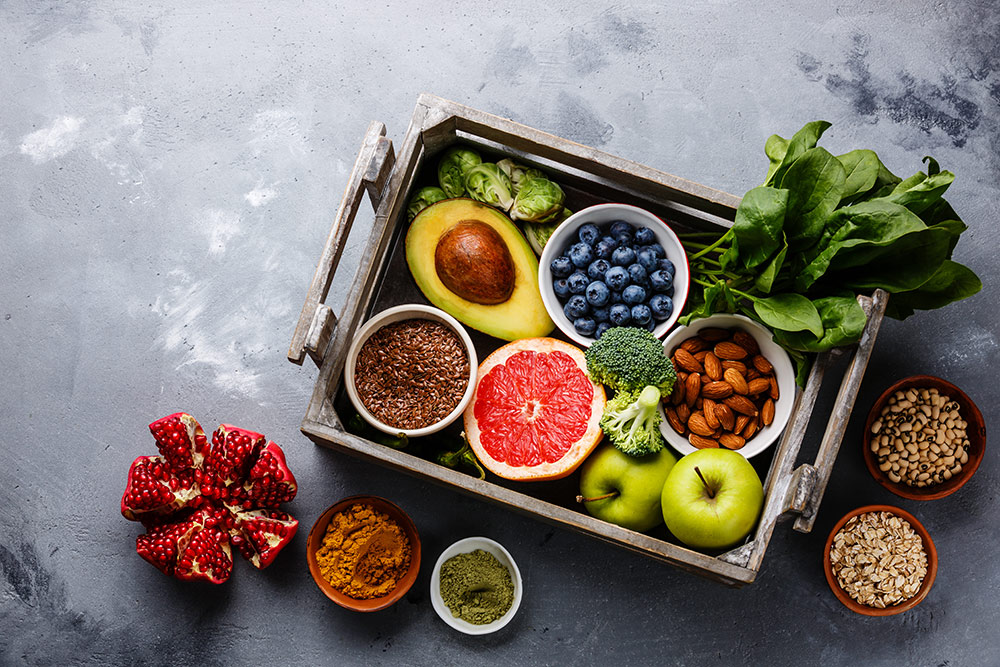Healthy Eating Tips to Boost Senior Health
Studies suggest that low diet and unhealthy eating behaviors expose seniors to a variety of diseases. It becomes a gateway for many kinds of medical conditions that eventually affects the quality of their life.
This is why many doctors and clinicians recommend that everyone start following a good diet once they reach their mid-30s to 40s.
Maintaining proper nutrition is vital for older adults, but it does become trickier because of aging’s effects on their bodies. This includes:
- Low appetite and slow metabolism
- Lowered sense of thirst
- Problems in the body’s ability to absorb nutrients
- Swallowing and chewing difficulty
- Prone to diseases that limit the kind of food they consume
- Lowered sense of taste and smell
- Medications that interfere with their appetite
Moreover, external factors indirectly contribute to a senior’s unhealthy eating behaviors, such as financial problems, living situation (living alone), mental illness, and brain-related ailment.
There may be a lot of hindrances in your journey towards a healthy body. But have faith! It may be difficult, but it is not impossible. Many have conquered these obstacles, so what’s stopping you from doing the same?
To help you achieve and maintain a healthy body, here are effective senior healthy eating tips to guide you.
1. Give Variety to Your Meal
No single food can give you all the nutritional requirements you need each day. You need to learn how to mix and match ingredients and provide diversity to your everyday meals. Some of your nutritious choices include:
- Fruits and vegetables (e.g., green leafy veggies, berries, and lemon)
- Foods rich in omega-3 fatty acids like tuna and salmon
- Whole grain cereals and bread
- Low fat or nonfat dairy products (e.g., eggs, milk, cheese)
- Lean protein (e.g., skinless white meat, Greek yogurt, beans, and peas)
These foods provide a high amount of vitamins and minerals but without the extra calorie content that can be bad for the health. Giving your plate a splash of colors also makes a diet more fun and exciting to do.
2. Hydrate Yourself
Dehydration is an overlooked medical condition that affects a considerable percentage of the older population more than you can imagine.
Old age reduces a senior’s ability to sense feelings of thirstiness. This means that by the time they feel thirsty, their body is already experiencing mild dehydration.
To avoid this, you should practice drinking at least eight glasses of water daily. Stick to non-flavored drinks devoid of added sugars, caffeine, and alcohol.
For seniors currently in memory care assisted living communities, you can have your caregiver remind you to drink water now and then.
3. Eat More Foods With Antioxidants
One of the most useful senior healthy eating tips you will get from your nutritionist is to include lots of foods rich in antioxidants to your daily meals.
A diet containing the right amount of antioxidants proves to be of great help in boosting your health. Some of its benefits to seniors include:
- Reduces the risk of developing heart diseases and cancer
- Protect the cells from harmful free radicals
- Reduces unwanted inflammation in the body
- Slows down aging
- Improves vision and cognitive function
Food sources include green leafy veggies, carrots, lean meat, seafood, herbs, spices, and green tea. Bananas, raspberries, grapes, and strawberries are also rich in antioxidants.
4. Stack up on Healthy Fats
Not all fats are bad. You just need to find the right kind and amount of fat that is considered healthy and beneficial to the body.
One such example is unsaturated fats, which contribute towards a healthy brain function and cellular growth.
Moreover, these fats help get rid of bad cholesterol that might cause clogging problems in your arteries.
Stacking up on healthy foods is not a problem for an older adult in an assisted living facility. But if you live independently or with a loved one, here are some healthy fats to include in your meals.
- Chia seeds
- Trout, sardines, and salmon
- Nuts
- Dark chocolate
- Full-fat yogurt
According to the dietary guidelines, seniors should get 30% of their daily calories from unsaturated fats. Exceeding that threshold can result in weight gain and the development of heart disease.

5. Stick to Homemade Meals
It is hard to keep track of the kind of nutrition that goes into your stomach when you do not know what it is made of.
Make sure that every heart meal is made from ingredients high in nutritional value by preparing it yourself or with the help of a loved one. You can also have assisted living facility staff help you in preparing nutritious meals.
Sticking to self-made meals helps you follow and not go over your recommended servings.
If you can’t cook it yourself, you can instead check the label of every pre-packed meal and canned goods you buy.
6. Skip the Junk Food
All senior healthy eating tips would be for nothing if you still keep going back to your cheesy bacon burger and large fries combo.
Heavily processed junk foods taste so much better because they are packed with unhealthy preservatives. Studies found out the several harmful effects of these meals in your body, like:
- Increasing your risk of having cancer by up to 12%
- Puts too much sodium, fat, and sugar into the body
- Contains too much cholesterol that can clog your bloodstream
- Have artificial ingredients
- Calorie-dense yet quicker to digest, thus putting more pounds in your body than you can burn
While at the subject of purging harmful substances, why not try to go all the way by also cutting out your bad vices such as smoking and alcohol drinking.
These unhealthy behaviors stimulate a “feel good” feeling that can be addictive but extremely dangerous to your health.
7. Take Supplements
Maintaining a particular diet type can be more challenging for some older adults due to underlying medical conditions. Some diseases and medication can affect a senior’s appetite or their ability to absorb nutrients.
When this happens, it is okay to seek help from other sources of nutritional needs, such as multivitamins and dietary supplements.
There are many kinds of health supplements in the market that will help your body get the vitamins and minerals it needs. However, before buying one, you should consult first with your doctor and let them be the one to decide which supplements you can take.
Some multivitamins interfere with certain medications, so it is best to seek a medical professional in this matter.





